| |
| |
| |
| Presented By PhRMA |
| |
| Axios Vitals |
| By Tina Reed ·Nov 05, 2021 |
| 😎 Happy Friday, Vitals readers. Today's newsletter is 916 words or a 3-minute read. 🚨 Situational awareness: Pfizer announced its oral antiviral drug was found to reduce the risk of hospitalization or death from COVID-19 by 89% according to interim results from a mid-to-late-stage study, Axios' Rebecca Falconer reports. |
| |
| |
| 1 big thing: New vaccine rivals |
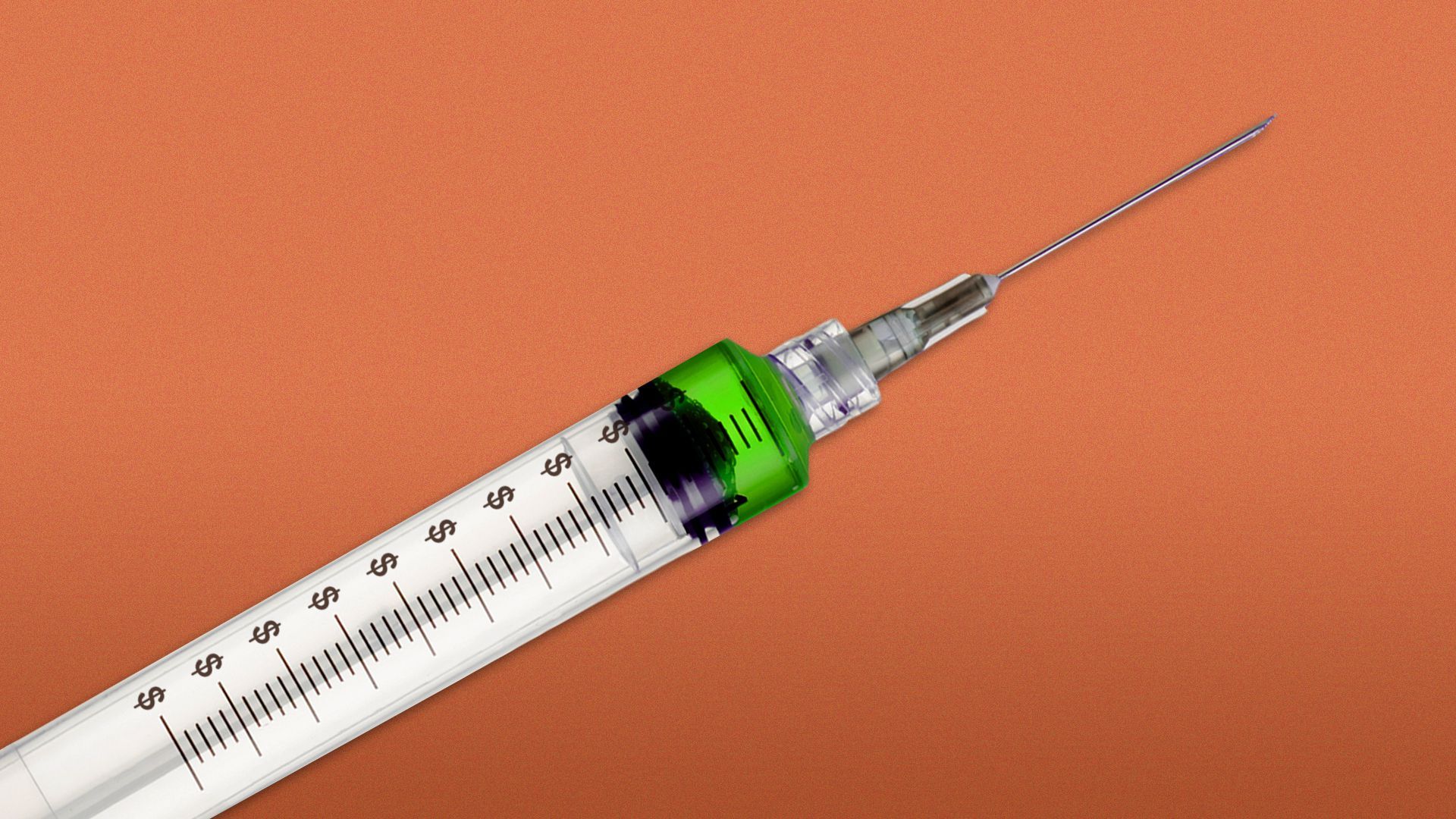 |
|
| Illustration: Allie Carl/Axios |
| |
| Rival vaccine makers are trying to elbow into the massive COVID-19 market, arguing for federal funding and claiming advantages over the current Big Three choices in the U.S. Why it matters: There's huge remaining demand around the world, and researchers say there should be more support — including money — from the Biden administration to fill it. State of play: Pfizer-BioNTech, Moderna, and Johnson & Johnson developed highly effective vaccines at record speed, and have produced more than enough doses to vaccinate every American. Yes, but: The rest of the world isn't getting the doses it needs from the U.S., and it's in the U.S. interest to get as much of the world vaccinated as quickly as possible because of new variants. - New competitors say they can help fill that gap, but not without the kind of intense investments that helped the Big 3 get there.
What they're saying: "I feel like we've gotten on the deck of the aircraft carrier and declared 'Mission Accomplished' and it's just not," said Corey Casper, CEO of Seattle-based Infectious Disease Research Institute. - IDRI, a nonprofit biotech organization, partnered with the company ImmunityBio on what it calls "next-generation" vaccine candidates.
- Another is a candidate based on "old school" technology out of Texas Children's Center for Vaccine Development.
- "[Our vaccine] checks every global health box there is," said Peter Hotez, a vaccine researcher who helped develop a COVID-19 vaccine prototype in Texas. "It's trusted and it works. And yet, everyone's focused on the shiny new toys."
The other side: "This administration is investing in a unique, whole of government approach to develop new COVID-19 treatments and to respond to the health needs of the public," an HHS spokesperson said in an emailed statement. Go deeper. |
    |
| |
| |
| 2. A bigger meaning to drug negotiations |
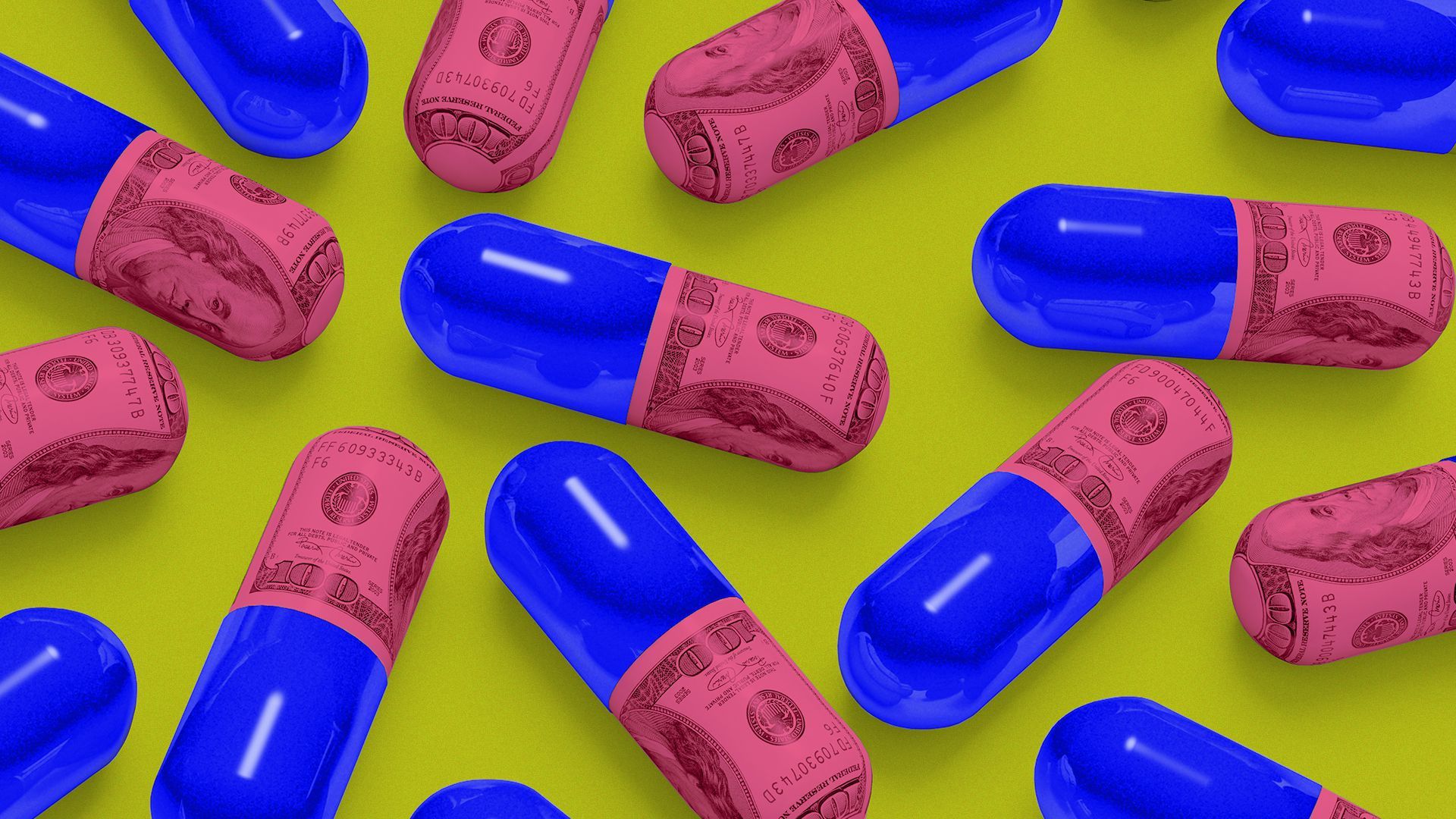 |
|
| Illustration: Rae Cook/Axios |
| |
| Here's one wonky but meaningful clarification: Democrats' drug pricing bill would allow Medicare to negotiate the prices of up to 20 new drugs a year, Axios' Caitlin Owens and Bob Herman write. - But the prices negotiated in previous years would also remain in effect.
Why it matters: Which drugs can be negotiated is still much more limited than Democrats' original plan. But eventually, Medicare will likely be able to negotiate the prices of a lot more than just 20 drugs. Details: The bill says the federal government can begin negotiating the price of 10 single-source drugs in 2023, and those prices will go into effect in 2025. - By 2026, another 15 drugs can be negotiated. Adding the 10 from the prior year and the total reaches 25. By 2027, another 15 drugs, plus the previous 25, puts the total at 40.
What they're saying: "The number of drugs up for negotiation will be cumulative over the years, and that's not including negotiations on insulins," the industry group PhRMA told Axios. - So by 2030, 100 drugs will have been eligible for negotiation and, unless a competitor has come to market, they'll still be locked into the negotiated price.
Share this story. |
    |
| |
| |
| 3. Insurers still aren't worried about COVID |
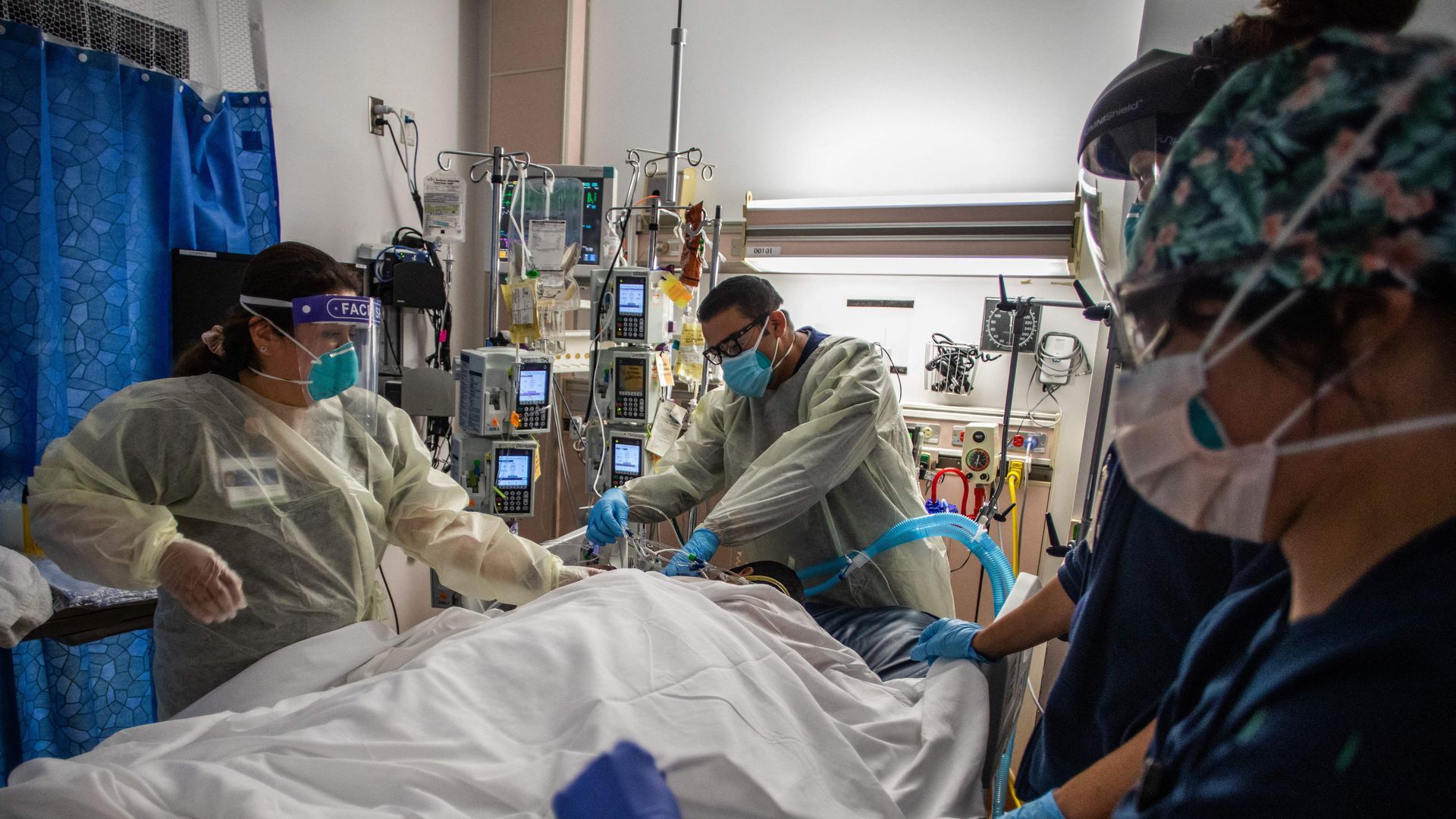 |
|
| Hospitals workers care for a COVID-19 patient. Photo: Apu Gomes/AFP via Getty Images |
| |
| Most of the big health insurers have sidestepped massive coronavirus-related costs so far this year, due in large part to people putting off other care, Bob reports. Driving the news: Health insurers were very focused during the third quarter on their medical loss ratios, or the percentage of premiums that are paid toward health care services and drugs. - UnitedHealth: Medical claims came in lower than expected, and the company believes the worst of COVID may be over.
- Anthem: Similar to UnitedHealth, Anthem's MLR was lower than predicted. Higher COVID costs during August's surge were more than offset by people deferring other types of care.
- CVS Health: Medical expenses were higher than expected, but CVS expects its Aetna plans will bounce back in 2022 with fewer COVID costs, and with profitability expected to remain high.
The bottom line: Health insurers remain significantly more profitable today than they were before the pandemic, even after factoring in COVID costs. |
    |
| |
| |
| A message from PhRMA |
| Fixing health care means putting patients first |
| |
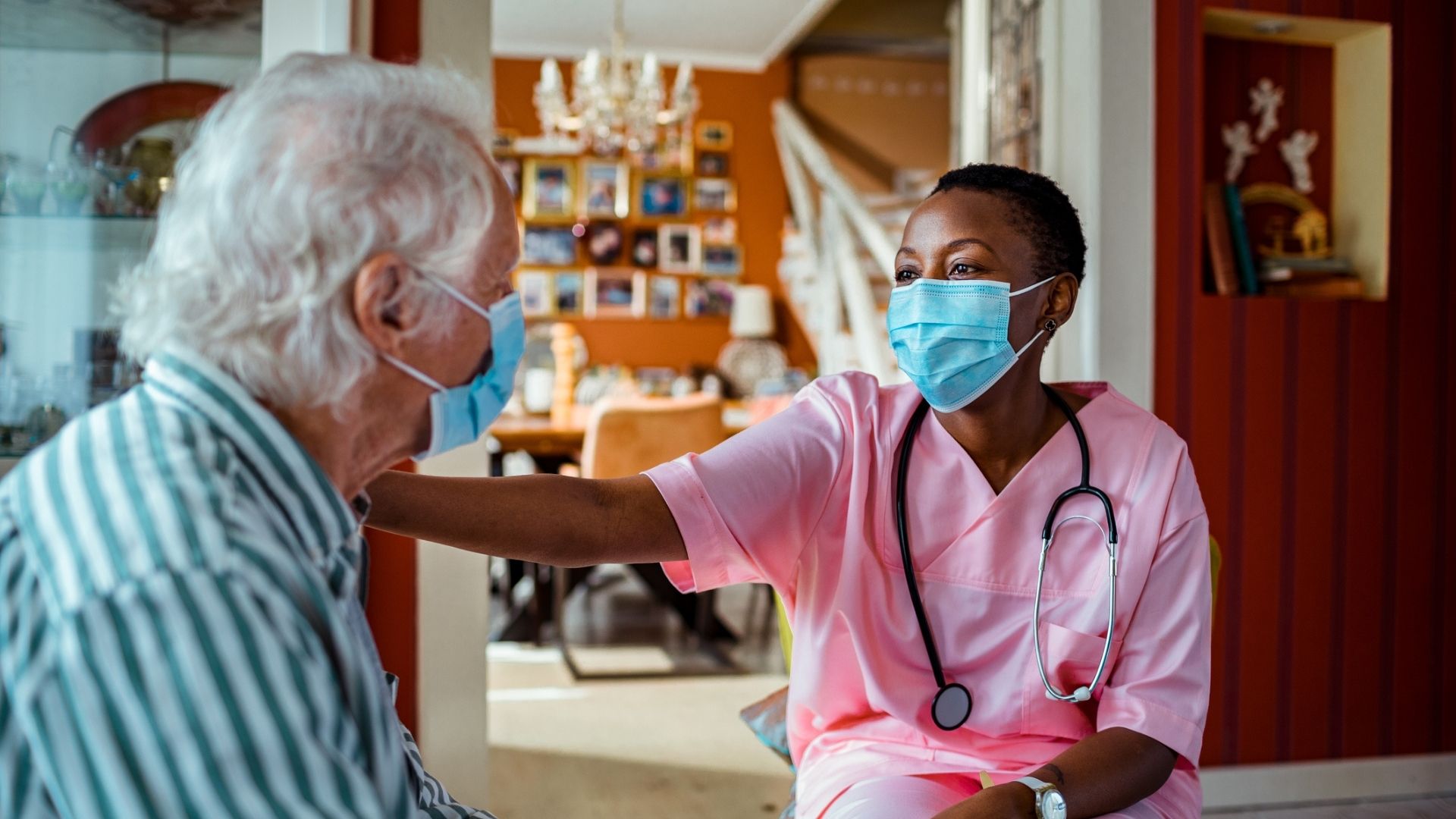 |
| |
| From out-of-pocket costs, to deductibles, to hospital bills – the most vulnerable patients face challenges. 3 in 10 Americans who have insurance still face a financial barrier to care. We need to make the cost of medicine more predictable and affordable. Learn more. |
| |
| |
| 4. COVID rapid test problems |
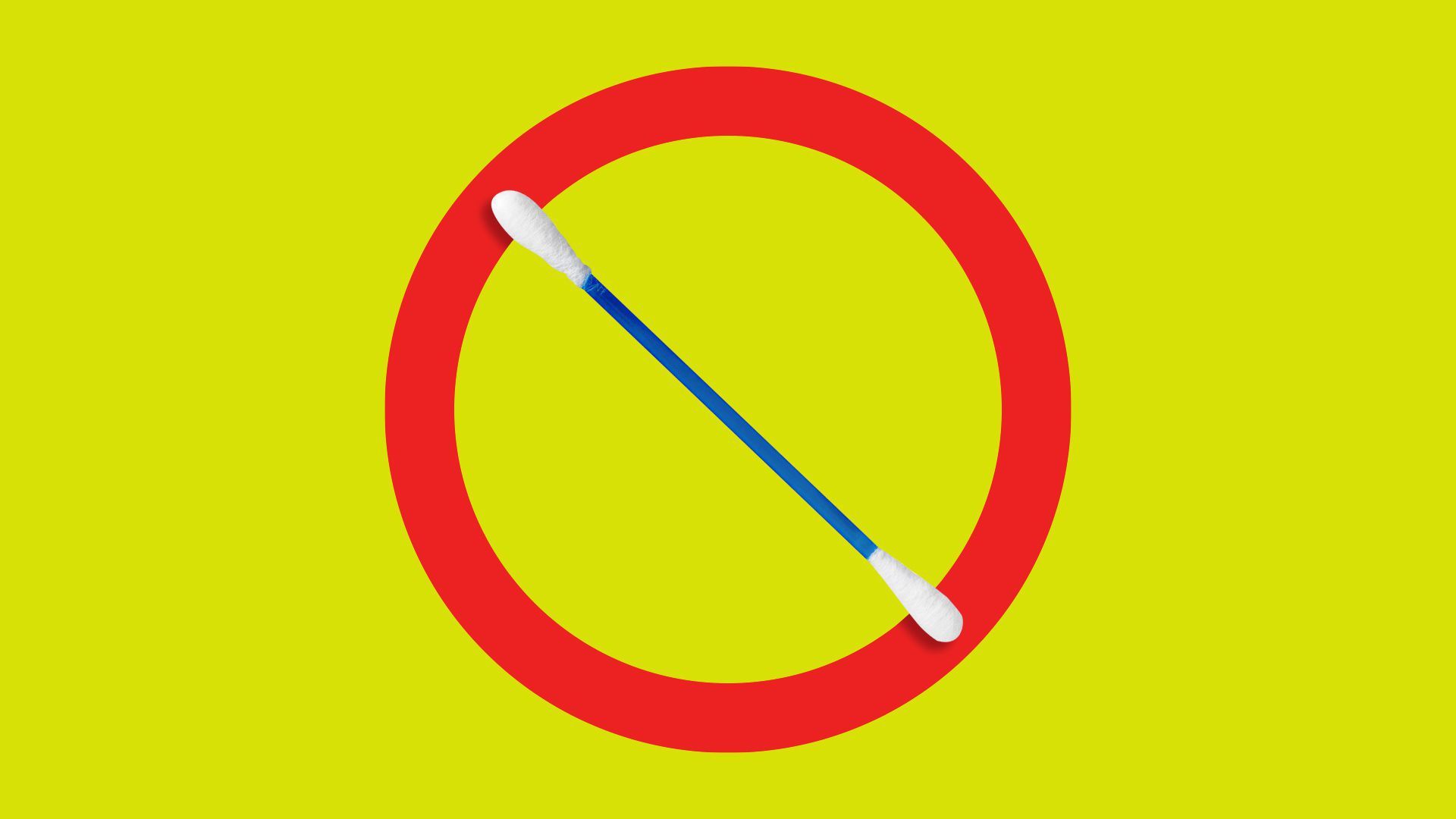 |
|
| Illustration: Aïda Amer/Axios |
| |
| The U.S. rapid testing effort for COVID-19 has been much slower and more expensive than in Europe and is long overdue for a fix, Axios' Marisa Fernandez writes about a new analysis from the Kaiser Family Foundation. Driving the news: This could become an even bigger problem after the Biden administration announced Thursday a new federal vaccine rule that would require employees who refuse to get vaccinated to get weekly COVID tests. - Already, demand has far outstripped supply, with consumers struggling to reliably find tests in stores and employers testing their staffs caught in bidding wars to secure tests, per Reuters.
The big picture: In total, public health experts have estimated the COVID-19 testing supply chain will need tens of millions of tests per week on the market to keep up with demand in schools and workplaces. Between the lines: Since the creation of COVID rapid testing, the U.S. regulatory system has flip-flopped in being overly cautious and overcorrecting in the rapid test space, according to an investigation out Thursday from ProPublica. Read more. |
    |
| |
| |
| 5. Catch up quick |
 |
|
| Photo: Jay L. Clendenin/Los Angeles Times via Getty Images |
| |
- Moderna falls behind on vaccine deliveries. (Axios)
- U.S. cancels multimillion-dollar deal with COVID vaccine maker whose plant ruined Johnson & Johnson doses. (The Washington Post)
- WHO: Europe is again at epicenter of pandemic. (Axios)
- U.K. regulators approve first antiviral COVID-19 pill. (Axios)
|
    |
| |
| |
| 6. Dog of the week |
 |
|
| Newman. Photo: Jonathan Sugar. |
| |
| Meet Newman, an Australian Shephard who lives with mom and dad Jonathan and Nan Sugar in Ann Arbor, Michigan. - Author's note: That hat is a mood and I like it.
|
    |
| |
| |
| A message from PhRMA |
| Fixing health care means putting patients first |
| |
 |
| |
| From out-of-pocket costs, to deductibles, to hospital bills – the most vulnerable patients face challenges. 3 in 10 Americans who have insurance still face a financial barrier to care. We need to make the cost of medicine more predictable and affordable. Learn more. |
| |
| 🧑🌾 Enjoy this newsletter? Share it with your friends! |
 | | It'll help you deliver employee communications more effectively. | | |










No comments:
Post a Comment